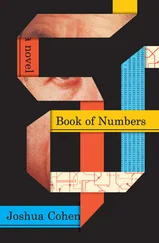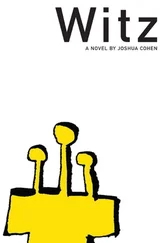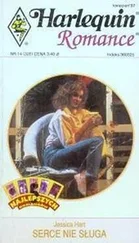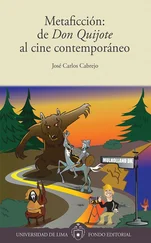His brother — who was younger, a redskinned diminutive regarded as unmarriageable, born late in their father’s middle age — scoffed at what his brother had said and said instead, “You have no senses besides your eyes, brother! You’re made entirely of surface! This carving our grandfather carved on the headboard of our father’s bed quite obviously depicts the peasant or workingman imperiled in a forest of giants — in a forest of towering landowners and Titans of industry like your father-inlaw — and he, the symbolic proletarian, is dwarfed by them, in their shadow he is dwarfish and inconsequential. Indeed, this carving must represent to us the coming war where the poor who toil in the fields and in mines like ours will revolt against the rich who own the fields and mismanage the mines and after that war is ended no man will ever be lost in the woods of another’s exploitation.”
And then there was a war. And both brothers fought in it but on opposite sides, the older brother compelled to fight in time but the younger brother an eagerly early volunteer for the Revolution that came through their country like a flood and like fire. And though the older brother — that pressured conscript fighting on the side of the greedy landowners and factory management — died in combat with a bullet just a screaming kopek paid to one ear, the younger brother survived and was in his medaled survival happy to decamp to a smaller apartment when his family’s house was nationalized by the State after that war of class struggle concluded.
And so leaving behind everything for the comfort of the State — the tables and chairs and loveseat for the State to relax in along with a footstool upon which the State could rest its feet if it would expropriate any feet — the brother wracked with considerable guilt took with him and his nursemaid wife only the bed that was soon to be their daughter’s — their daughter who grew up tall and silently beautiful and unlike her mother, who was the daughter of a Revolutionary mine secretary, was very wellschooled, having been sent away to university in the capital city to study biology and squint around with microscopes but for only a year before she had to return home with another war, this time an international war beginning because it was time for her to get serious about the future of building her country and life, which meant marriage.
And she saw in the bed in her parents’ house she returned to, the bed she’d almost forgotten from childhood, in its headboard carved with the scene of the man wandering alone amongst the wood trees at night — a symbol of sorts, though when she was younger she could not define it or untangle the meaning of her sadness. Her switching the radio off to better look at it long late at night, lying with her head of long straight brownblonde hair mussed against the foot of the bed in the style of its wavy grain, in her maturation seeing in the carving of the carverman lost amid the immense trunks of trees a symbol for, yes, that was it, existenz (the university had given her that foreign word as a dowry), for man’s essential predicament in the universe, how we are lonely and lost to wander among trees so immense as to be incomprehensible around us, not sure how we got into the woods or how to get out of them if ever, and she saw that that carved man — she didn’t know he might be the carver himself, her greatgrandfather — was actually all men and all women too, unfixed, inconstant, errant in nature just like the boy she flirted with declaimed: “On the branch bare and lone/trembles the belated leaf,” a young man who wrote her extensive letters though he lived just across the courtyard, who smoked cigarettes he rolled with great fast skill and drank deeply from a flask and scribbled his own poetry with jetliner imagery and attended the movies regularly (but he’d never hold her hand during the newsreels).
She married him when he came back from that next war alive, marrying him because just as the only expression of wood is in its carving into a thing, the only expression of love can be marriage. And if a man who should be dead lives, then when he comes back from his war wounded — even if wounded in only his youth — a monument should be erected to him. And there is no better monument than a child — not wood, not even granite.
She took the bed with them as a cradle, moving it into their apartment they were reassigned to on the outskirts of their city (the country’s second city: this was the city of culture, not the city of business, though in truth neither could lay claim to either). An old inconvenient wooden bed hauled incongruously up to the eighteenth floor of a prefab prestressed panel tower above a playground poured to harden around a gnarled jungle gym and rusty teetertotter teetertottering, a shattered liter of milk frozen into a purple skating rink in the light waned through the birches — it was the oldest and, given years, only wooden thing in their apartment of metal things and, given another decade, plastic clothing and plastic plates and plastic bottles and plastic glasses.
But her daughter, her daughter of flesh and not of plastic, the daughter’s daughter when she encountered the bed throughout her lazy childhood — sitting on its lapse as if a couch to watch across the armlengthwide apartment the television set no bigger than a keyhole — decided that its headboard depicted no symbols or representations at all, that there was at base nothing to that headboard’s carving but a man standing in the woods, nothing but a man on one hand and the woods on the other and one was in the other and surrounded by it and that was the way it was and would be forever and nothing meant anything or could be signified. This was what she concluded — she who did not know trees, she who could not identify which trees if any in particular had been carved into the headboard’s wood that was of a type she could not identify either. She stared at it inattentively over Tokyo cartoons about undersea robots dubbed into sibilant Slavics and would think only that it was nice, the bed, that it was nicely comforting but also old and disgusting and a disgrace to the new that could not be afforded or even enough manufactured in the days when she sat on it painting her toenails with seagreen and white housepaint, affectionate tokens from the building’s manager who was infatuated with her and sat with her in silence watching her read her tricolor Femininka magazines and drinking with her tea with “cognac” (which he’d also brought, provenance uncertain).
Watching the television she would, when bored with the program or news, which was often because the programs were always boring and the news was nightly a lie, turn to nap her kohlrimmed eyes on this bedhead and muse to herself as if making a program inside her own head fair and uncarved, “What is that man in that forest thinking, is he thinking at all and what is going on with him that he’s in the forest to begin with?”
But more often, dulled, she’d say dully to herself, “That is a man in the woods and that is all he is, that is a man in the forest and that is all he ever will be — he will never do any better!”
She’d say to herself, “He will never get out,” as if she’d do any better, “like me he is stuck!”
She was herself like wood this daughter but like deadwood because she’d been chopped from the roots of her life and left unwatered to wither and die. She was hardened like bark (those were the stockings she stole from a friend), but absent mostly as if without sensation, which is to say that to men she was attractive because inaccessible in her emotions, her life passed her by like the jungle scenery in the background of Tokyo cartoons, her eyes glozing into knots and her mouth into a knot and her clear skin was in the mornings brittle but furrowed and rough in a wild way as if she’d been lasciviously dreaming and once a man — the building manager Blatnoy, a frustrated engineer who used to work in a warehouse but also on the side for extra money and goods fixed audio/visual equipment for the Politburo’s connected (he connected them ), he’d eventually become her husband spastic and fat in a camouflage vest its pockets bulging with tools — raped her not on that old wooden bed she’d inherited and used as a television sofa and outdated newspaper rack or on the newer metalframed bed in the bedroom she shared with her mother but instead in the kitchen where all political movements are birthed, him bending her over the plastictopped table then over the range, amid the greasy knobs she gripped as he left of himself inside her a puddle (but this had become a Kommunalka apartment, so rape went on while a lab chemist ate her cold supper in the hall, while the widowed librarian they were forced to take in last month accused in raucous tones the cosmetologist next door of toiletseat theft).
Читать дальше












